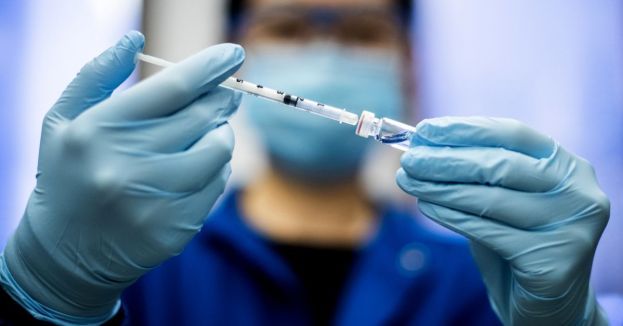Trial participants were left to decide for themselves where and how often to wear masks and how to practice social distancing, a participant told Business Insider.
And these differences in how coronavirus vaccine trial participants behaved could have drastic effects on how likely people who got the vaccine, versus those who got a placebo, where to get infected.
Neither Moderna nor Pfizer gave trial participants clear instructions on how to behave to try to reduce their infection risks (or not), and didn't log ths behaviors either, unless they suspected someone had caught coronavirus.
WATCH: SPEAKER JOHNSON CALLS ON COLUMBIA UNIVERSITY PRESIDENT TO RESIGN![]()
This doesn't necessarily mean that the two leading vaccines don't live up to the 90 percent efficacy found by their trials, but it does leave a gap in what information we know about how much protection is offered by a shot versus by masking and social distancing.
WATCH GREAT ANALYSIS: THE ABSURDITY OF ANTI-ISRAEL PROTESTS![]()
It comes as the results of AstraZeneca's trial for the Oxford University-designed shot come under fire after Oxford acknowledged that it was a manufacturing error that led it to try giving participants a half-dose for their first shot - an accidental arm of the trial that proved most effective.
REPUBLICAN SENATORS EXPOSE DARK SIDE OF 'FOOD DELIVERY' ECONOMICS![]()
In order for Moderna and Pfizer to get a clear picture of how their vaccines would work in the wild, they needed to have a large group of trial participants with high odds of catching coronavirus.
Alleged 'challenge trias' - which are now planned in the Netherlands - are ethically dicey because they involve intentionally infecting people with a virus after inoculating them against it, hopefully.
AMERICA'S BIRTHRATE CONTINUES TO PLUMMET - ARE MILLENNIALS TRADING DIAPERS FOR DEGREES?![]()
The alternative is a slower method of vaccinating half of a group, giving the other half a placebo, and returning them to their daily routines and waiting until some predetermined number of them get infected.
In an effort to speed this process and ensure that infections did happen, Moderna and Pfizer recruited people like health care workers or other essential workers who would come into contact with many random people through their jobs or public transit.
SEE TO BELIEVE: COMING SOON TO A KID'S DRAG SHOW NEAR YOU...(WATCH)![]()
But as these trial participants returned to normal life, the vaccine was not the only factor influencing whether or not they caught coronavirus.
'They needed participants to interact moderately in the community, such as grocery shopping once a week, picking up food in restaurants, take out, or dining in once in a while,' Jenny Hamilton, a 57-year-old former police officer who took part in Pfizer's trial told Business Insider.
'Masks and social distancing were left up to us.'
The Centers for Disease Control and Prevention (CDC) estimate that masks can block up to 80 percent of infectious droplets.








 Discover alternative ideas that will make you think
Discover alternative ideas that will make you think Engage in mind bending debate
Engage in mind bending debate Earn points, rise in rank, have fun
Earn points, rise in rank, have fun


